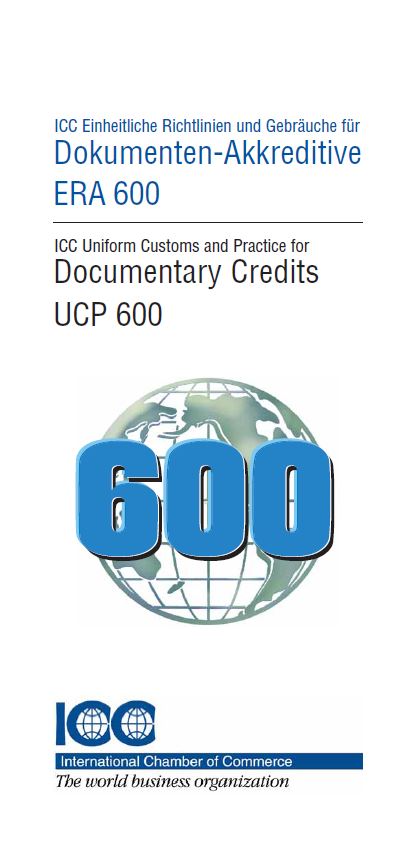€111,82
Euro zzgl. Versandkosten
The Guide to ICC Uniform Rules for Demand Guarantees (URDG 758) provides a clear and comprehensive commentary on the rules and the accompanying model forms. Furthermore, it debunks the many myths about international guarantee practice in order to identify which pitfalls to avoid.Renowned guarantee experts (more than twenty year of experience in practice, research and teaching), the authors give deeper insight into the revision process leading to URDG 758, revealing the background of each policy choice and decision taken while drafting the rules. Case studies throughout the Guide support and enliven the comprehensive analytical commentary on the rules.
Drafting
Issuance
Changing of terms
Making a presentation
Examining the presentation
Making payment
Termination of the guarantee and counter-guarantee.About the authors
Dr Georges Affaki, Chairman of the URDG 758 Drafting Group. He is a member of the Executive Committee and Head of Structured Finance at BNP Paribas, CIB Legal. He is also Vice-Chairman of the ICC Banking Commission and Chairman of the Task Force on Guarantees. Dr Affaki is Associate Professor of Law at the University of Paris II and represents ICC at the United Nations Commission on International Trade Law (UNCITRAL) Working Group VI – Secured Transactions. He is the author of several books and articles on international banking, secured lending and arbitration, including “A User’s Handbook to the URDG”, ICC Pub 631.
Sir Roy Goode, CBE, QC, FBA Emeritus Professor of Law at the University of Oxford and Emeritus Fellow of St. John’s College, Oxford. A retired Queen’s Counsel, he chaired the drafting committee at diplomatic conferences for four international conventions. A former Chairman of ICC’s Commission on International Commercial Practice, he chaired the Drafting Group that finalised ICC’s first Uniform Rules for Demand Guarantees 458 and is the author of “Guide to the ICC Uniform Rules for Demand Guarantees”, ICC Pub 510. He is a Fellow of the British Academy and was knighted in 2000 for services to academic law.
Details:
| Authors: | Dr Georges Affaki; Sir Roy Goode, CBE, QC |
| Number of pages: | 512 |
| Publishing date: | 2011 |
| Language: | English |
| Format in cm: | 16.8*24.8 |
| ISBN: | 978-92-842-0078-8 |
Table of contents:
CHAPTER 1: Demand guarantees and counter-guarantees in a nutshell
PROLOGUE: The road to URDG 758
– Why the URDG?
– A brief history of the revision
– URDG 758 and URDG 458 compared
CHAPTER 2: The URDG in a nutshell
CHAPTER 3: The URDG 758 in operation
CHAPTER 4: A commentary on URDG 758
CHAPTER 5: The URDG in the world
APPENDICES
– Appendix 1 ICC Uniform Rules for Demand Guarantees (URDG 758) and Model Forms
– Appendix 2 The Business Case for the Revision of URDG
– Appendix 3 ICC Policy Statement on Originals
– Appendix 4 DOCDEX Rules
Wie setzen sich die Preise bei Auslandslieferungen zusammen?
Für Produkte, die auf https://www.iccgermany.de/shop/ angeboten werden und an Bestimmungsorte innerhalb der Europäischen Union (EU) und Nordirland versandt werden, muss bei Verkäufen an Privatpersonen nach den innerhalb der EU geltenden Gesetzen und den innerhalb der einzelnen Mitgliedsstaaten (Bestimmungsland) variierenden Steuersätzen Umsatzsteuer berechnet werden. Die Höhe der zu berechnenden Umsatzsteuer richtet sich nach verschiedenen Faktoren, wie der Identität des Käufers (Unternehmer oder Privatperson), dem Wohnsitz des Käufers, der Art des gekauften Produktes (z.B. Buch, ebook, …) sowie dem Zielort, an den das Produkt versandt werden soll (Bestimmungsland).
Die Preise auf https://www.iccgermany.de/shop/ sind in Euro ausgewiesen und verstehen sich einschließlich deutscher Umsatzsteuer. Bitte beachten Sie, dass der Endpreis von der tatsächlichen Umsatzsteuer abhängig ist, die für Ihre Bestellung anfällt. Bei Bestellungen von Privatpersonen aus dem EU-Ausland wird die deutsche Umsatzsteuer abgezogen und die für das Bestimmungsland/Kundenland gültige Umsatzsteuer berechnet. Den Endpreis inklusive der für die bestellten Artikel gültigen Umsatzsteuersätze sehen Sie auf der letzten Seite des Bestellvorgangs.

Das Logistiker Set: Ihr umfassendes Produktset für die Praxis Bestellen...

Taschenbuch in deutsch-englischer Ausgabe